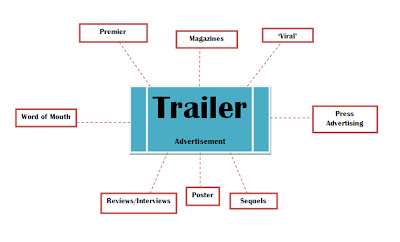Production
The production of a film basically means how was the film was thought and how was it inspired, it literally means the beginning of the making of a film. To make a production of a film you will need to include various things to make this happen.
You need a motivation to make this film, if there's no motivation there's no successful film. The process of the film is really important, as you need to be really organised to make the film a success.
Every director will need to set up a process and follow it, it makes it easier and avoids less mistakes happening during the making of the film.
Every director that think of making a film will need stakeholders. Stakeholders are basically the ones that sell the film outside in the world, this stage can last for a very long time and can be repeated various times until all the stakeholders are content with the screenplay.
Every director will need finance and to develope a finance. The producer will use a pitch of the film and his persuassion to get the money for a script. There are various ways on how to get money to develope your script, producers can go to film production companies for development money, the producer can also offer the future sales and broadcast rights to the film in return for money to develop the script. The producers will also try to pitch their ideas to public and private sectors. However, investing in films it's a high risk as they don't always give back what they say at the beginning, it's not always a safe bet.
Distribution
Distribution is the reason why people know about a film, it's in between the production and exhibition. The distributors will invest on the film, will buy the rights after the film is made, this happens more often if its an independent film, and distributors will belong being part of a multinational corporation.
The film can be well known, with some marketing strategies, for example, above and below the line advertisings, trailers, test screenings, etc. They will sell the big stars in the film and they're job is to target the target audience.
Exhibition
Exhibition is the last stage, this is basically when the film is finished and it's time to collect data or information about the film , they would have cinema screens, exit polls, modes, etc. They would put collect data on how people heard about the film, why watch it and other various questions. This helps for the production of a film and it helps for future releases.
Example of an exit poll for the film 'Adulthood'





